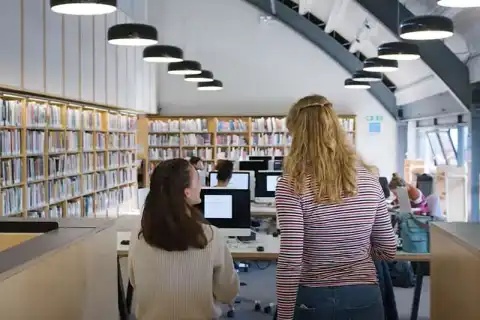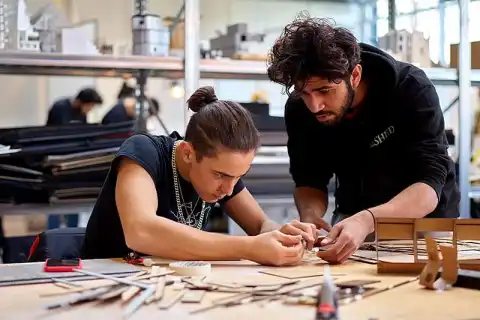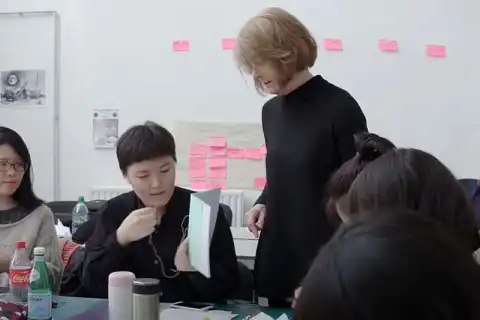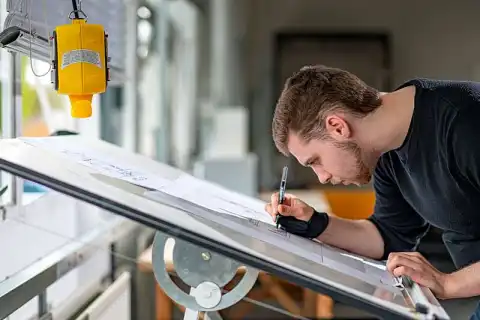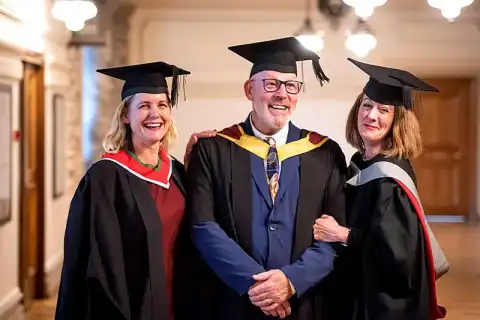Master of Arts - Product Design
- 1 year
- Duration
- 18,000 GBP
- Price
- Rolling admission
- Start
- Rolling admission
- Deadline
- Master
- Degree
- Campus
- Format
- Canterbury / United Kingdom
- Location
Program description
The MA Product Design programme at UCA Canterbury will push you to think beyond the box and investigate how we relate to the goods we design, how they affect the environment, and how they are made.
Designers with a background in making things by hand should take this course. You'll be challenged to look beyond the object itself, urged to think about how the design of a product could affect an emotion or have an impact on a specific area, and asked to defy convention as you combine the conventional with the avant-garde in your work.
On this programme, you'll study from a group of gifted academics as well as visiting lecturers and partners with a wealth of industry expertise. UCA Canterbury has a long history and a strong reputation in the industry.
Working together with students from the MA in Interior Design to take into account the spatial implications for product design, you will carry out individual research projects utilising an integrated product design approach and generate design solutions that fit with an overarching theme.
Graduates of our MA Product Design programme have gone on to hold positions in design management, independent design studios, architectural firms, and their own companies. Graduates with technical capabilities are highly sought after in the product design field, especially those who have access to equipment of the highest calibre, as well as the aptitude and drive to achieve. In order to compete in a fast-paced market, we want to produce product designers who have a broad base of knowledge, the most recent professional experience, and the requisite passion and drive.
You can choose the Integrated International Pre-Masters, a year-long preparatory programme of study to get you ready for your master's in the UK, improving your speaking and writing skills in English along with your specialty skills, research knowledge, and self-confidence.
Program structure
Term one
The University, its technical workshops, and other resources will be introduced to you. In the first term, you'll take part in a variety of lectures and seminars and begin to investigate your creative practise.
- Theory and Analysis
Through critical reading, careful observation, and careful handling, you will test and validate your technique. You'll examine circumstances related to your own work and give goods and craft artefacts thoughtful consideration.
- Exploratory Practice
In order to construct your own project proposal for stages two and three of your course, you will investigate innovative product design practises centred on the themes of physical and emotional travel. You will have access to a structured framework that will let you explore the potential of approaches, concepts, and topics in your field.
Term two
You start working on your MA project during term two, analysing and testing the objectives of your proposal during an extended period of self-directed study.
- Reflective Practice
You will reflect on your own practise and take into consideration the practise of others using the knowledge you've learned from the first term to create your own sense of critical awareness and creative independence. Building on the research issues you examined in Exploratory Practice, you'll develop a clear line of inquiry using relevant materials, ideas, and a setting that is well-articulated. During this course, you'll also have the chance to finish a professional practise period.
Term three
You'll use the knowledge you learn through your research to produce a final body of work in the third term of the course.
- Major Project
The creation of a portfolio, which must include finished interaction models and high-quality product prototypes, is required for the final stage of your MA programme. This portfolio represents the realisation of the concepts and explorations you have previously conducted during the course. The final product design, which combines academic and practical abilities, should reflect the quality and purpose of your design process in addition to taking aesthetics and study format into consideration.
Price
Fee for two semesters (1 year) is 18,000 GBP for international students
We have offer a range of scholarships and fee discounts.
Requirements for applicants
If you do not have qualifications from the United Kingdom, we will accept equivalent qualifications from your native country for admittance into our programs.
In addition to academic credentials, some of our courses require a portfolio of previous work.
For our Master's courses, we usually require that you have successful completion of your Bachelor's degree or equivalent from a recognised university.
English Language requirements for MA/MSc & MBA courses:
- IELTS UKVI or Academic - Listening 5.5, Reading 5.5, Speaking 5.5, Writing 5.5, Total 6.5
- Test of English as Foreign Language (TOEFL) iBT - Listening 17, Reading 18, Speaking 20, Writing 17, Total 90
- Pearson Test of English (Academic) - Listening 59, Reading 59, Speaking 59, Writing 59, Total 59
- Cambridge English Advanced (CAE) or Cambridge English Proficiency - Listening 162, Reading 162, Speaking 162, Writing 162, Total 176
- Trinity College London Integrated Skills in English (ISE) - Listening Pass, Reading Pass, Speaking Pass, Writing Pass, Total ISE III
- LanguageCert International ESOL SELT - Listening 38, Reading 38, Speaking 38, Writing 38, Total B2 Communicator High Pass
Portfolio requirements
We'll need to examine your written or graphic portfolio for these courses in order to review it. Once you've applied, we'll send you an invitation to submit your portfolio via your applicant portal; more details will be given at that time. This can also be arranged for you if you would prefer to evaluate your work with the Academic Team in person while on campus.
About the university

The UCA team firmly believes that creativity enhances the vitality, innovation, and humanity of global communities. That is why the university has been a fervent supporter of creative research and teaching for the past 160 years.
Architecture, crafts, fashion, graphic design, illustration, fine art, photography, film, media, the performing arts, and creative business are among areas of study offered by the university. Employers in the creative sector hold a high regard for this programs because of their excellent teaching standards.
We want to inspire people to use their creativity to drive change, overcome challenges and improve the lives of others.
So we’ve designed our university to be an inclusive, dynamic environment. Our campuses across Surrey and Kent, our Institute for Creative Innovation in Xiamen, China, and our homes within partner organisations such as the Maidstone Television Studios all have one thing in common: they are places to forge inspiring partnerships, make work with purpose and build real solutions to human problems across the globe – whether that’s as part of our vibrant teaching and research community, or as a student on one of our courses.
Read more about University for the Creative Arts (UCA), United Kingdom
